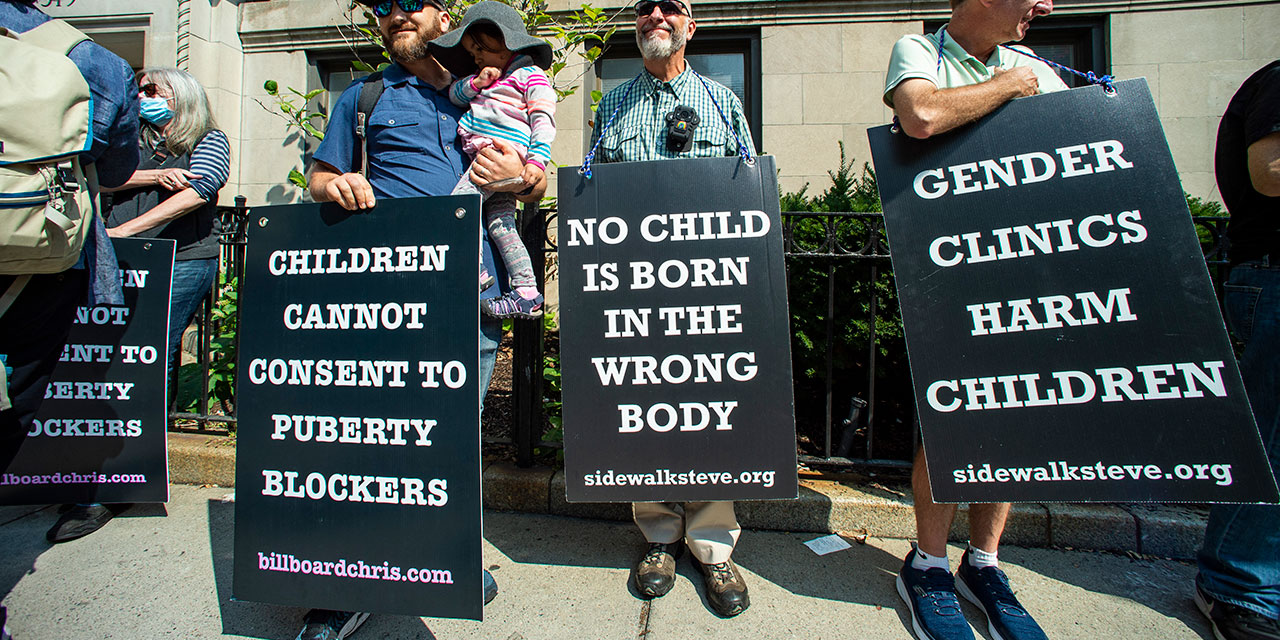The word “trauma” has proliferated in American life in recent years. Policymakers have embraced the term and introduced the concept into law. Americans seem increasingly willing to describe themselves as traumatized by negative experiences, or even by mere arguments that make them uncomfortable. Such expansive usage is distorting the meaning of the word, and it’s having an impact on mental-illness policy, too.
Trauma is best understood as a normal human response to potential physical harm. People’s bodies naturally generate certain psychological and physiological reactions to preserve life in the face of danger. For example, people who hear gunshots often experience elevated heart rates, heightened awareness, increased cortisol levels, and even memory loss. There is nothing pleasant about these responses—just as there is nothing pleasant about physical pain—but deeming them a medical disorder suggests that they’re abnormal. They are not: in fact, they can be critical to learning—and survival.
Research suggests that most individuals encounter at least one potentially traumatic event in their lifetime—that is, a stressor that could cause acute response and, potentially, a chronic functional impairment. Among the events that psychiatrists consider potentially traumatic are exposure to death, serious injury, or sexual violence, whether threatened or actual.
Though many people experience “potentially traumatic” episodes, almost none suffers chronic impairment as a result, even after the worst kinds of events. Research finds that, following such episodes, a clear majority experiences a “stable trajectory of healthy functioning and resilience.” The normal, short-lived emotional and physiological responses to such stressors mostly decrease or disappear within months. Only 7.5 percent of Manhattan residents surveyed one month after the terrorist attacks on 9/11, for example, had reactions that would qualify as “post-traumatic stress disorder” (PTSD). By six months, that number fell to nearly half of 1 percent.
Labeling trauma a medical condition may be a well-intended effort to ensure that the small number of those who suffer persistent, disordered responses to stressful events have access to potentially helpful interventions. But this approach trades limited benefits for serious costs. For one, initiating mental-health treatment after a potentially traumatic event is often no more likely to prevent long-term impairment than is doing nothing. Such interventions also tend to undermine a person’s natural resilience. Finally, the medicalization of trauma absolves individuals and institutions of accountability, particularly as use of the term has grown to include ordinary disappointments. People remain responsible for their actions, even amid hardship.
Today, policymakers and the broader culture reward individuals who claim to have been traumatized. Celebrities are regularly applauded for discussing their “traumas.” The Substance Abuse and Mental Health Services Administration awards grants to groups pledging to implement “trauma-informed” business practices, premised on the idea that nearly everyone has suffered from this condition and should therefore be coddled, lest they be—you guessed it—“re-traumatized.”
None of this is meant to suggest that those who suffer disordered reactions to distressing events should not receive sympathy or access to interventions that can restore their functioning. Nor is it to deny that adverse experiences such as poverty, poor education, or abuse can warrant nonmedical resources. The problem with society’s abuse of “trauma”—and, in all but the most extreme cases, its overdiagnosis of PTSD—is the implicit assumption that most of us are incapable of responding effectively to challenging, and sometimes terrible, circumstances. Applying the trauma lens to ordinary, if upsetting, events, or to normal responses to extraordinary stresses, serves to divert attention from the small group of those who genuinely suffer with persistent impairments.
Photo: Hartmut Kosig / iStock / Getty Images Plus






